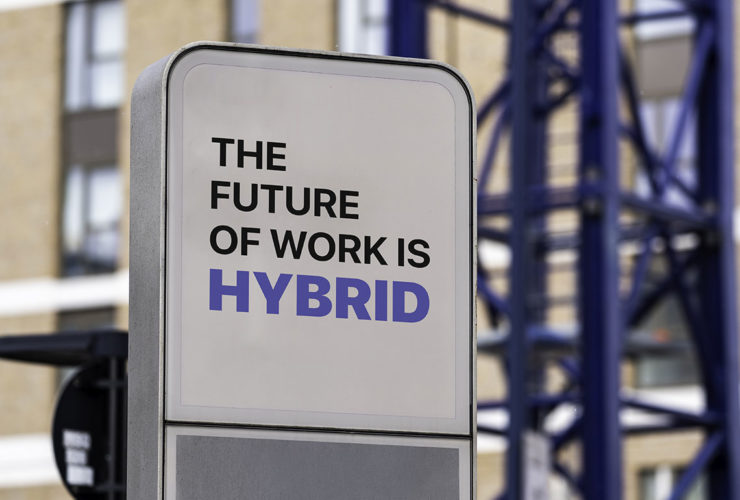Job candidates lie. Sometimes it’s an outright fib. Other times it’s an exaggeration or perhaps a claim of software familiarity that they’ll rush to train for prior to the interview. For some, it’s simply the foolish belief that they can “wing it” while they learn on the job, and no one will be the wiser.
“It’s an epidemic,” Scott Samuels, CEO of executive search firm Horizon Hospitality, told Monster.com. “More and more people feel like they can get away with lying because they think no one is going to check and verify. It’s rampant.”
Why Candidates Lie
Kim Isaacs, Monster’s resume expert, says it’s fear that drives the deception: “Fear of not being good enough, fear of not measuring up to their peers, fear of not getting called for interviews. Some people will do whatever it takes to get an edge.”
There’s a more fundamental reason, however; a reason for which employers must take the blame. It’s simple, really. Candidates fabricate, obfuscate, exaggerate, evade, and mislead on their resumes and during their interviews because it works!
UK job aggregator Adzuna conducted a survey of 3,587 workers and job candidates. Of respondents that admitted lying on their resumes, 83 percent said they still got the job; 43 percent said that their lie directly contributed to them landing the gig.
Employers are responsible for the success of the deceptions. A disturbing 48 percent of HR professionals who talked with Adzuna admitted they don’t always verify credentials. According to CareerBuilder, only 30 percent of employers spend more than five minutes reviewing a resume. Background screening service HireRight found that only 58 percent of small businesses verify employment and references. A mere 32 percent verify education.
The cost of candidate deception
Glassdoor estimated 263,586 unfilled jobs in the tech industry that added up to a value of $20.1 billion. (The 13,198 unfilled software engineer jobs alone were valued at $1.3 billion)
“Filling open jobs helps not only the candidates and the employers but the economy as well, according to Glassdoor chief economist Dr. Andrew Chamberlain.
“When more open jobs are filled with the right people, economic gains include greater business productivity and consumer spending, thanks to more people earning wages, then saving, investing and spending those wages,” he said.
But hiring poorly is worse than not hiring at all.
Thirty-nine percent of chief financial officers (CFOs) surveyed by Robert Half International said that bad hires had cost them productivity; 11 percent blamed bad hires for reduced sales. The executives said that supervisors spent about one day of each week managing poorly performing workers.
Glassdoor VP of People Mariah DeLeon noted additional consequences to the poor vetting of new hires.
“You’re not only paying a salary to someone who may not be performing to your expectations, but you might also be paying for additional training,” DeLeon wrote. “And if you end up having to let the employee go, you may be responsible for severance pay, not to mention the costs you’ll incur to conduct another employee search and hire another replacement.”
The financial implications are huge.
The U.S. Dept. of Labor estimates the cost of a bad hire at 30 percent of the employee’s first-year potential earnings. Of the more than 6,000 employers CareerBuilder surveyed on the subject, 27 percent said that a single bad hire had cost them more than $50,000.
Most notably in the tech industry, where the absence of women is alarming, there’s yet another negative impact to blindly accepting applicants’ skills claims. An employer who’s not adept at recognizing deception can exacerbate the diversity problem. That’s because, according to Columbia Business School research, men exaggerate their skills to a degree that is twice that of female candidates. Male MBA-student respondents in the study exaggerated past performance 30 percent; their female counterparts exaggerated by 15 percent.
“Recruiters and hiring managers are relying on candidates to reveal their true performance,” Columbia assistant professor Ernesto Reubon told Financial Times. “If you are able to convince others that you’re very good, chances are you will get the job. We found that men do this more often and they do it better. They do it better because deep down they believe they’re better.”
How many liars, and what they’re lying about
According to Monster, the most common deceptions are: 1.) Education embellishments – the claim to have ‘attended’ an applicable educational facility, when they might have taken a course or two online; 2.) Date deception. This might be as simple as claiming to have worked for a firm 2014-2016, when in fact employment started December 15, 2014, and ended February 1, 2016. The difference is about a year of experience; 3.) Skill stretching – the concept, for example, of using a software program a few times a couple of years ago and now claiming proficiency.
According to CareerBuilder, 62 percent of deceptive candidates are embellishing their skills set, 54 percent are padding their past responsibilities, 39 percent are fibbing about their employment dates, 31 percent are upgrading their job titles, and 28 percent are lying about their education.
More than 1,300 (37 percent) of Adzuna survey respondents admitted to lying on their resumes, and almost all of them (96 percent) said they’d do it again. Thirty seven percent of these fibbers said they were prepared to tell a “big lie” to land their dream job.
How to curtail or counter the deception
Liz Ryan, founder, and CEO of Human Workplace, in Five Ways to Tell if a Job Applicant is Lying, advised that interviewers should be on the lookout for candidates who are overly focused on your face once they comment or reply to an interview questions. If they backtrack on their remarks because you frowned or gave off any other sign of disapproval, be wary. They’re feeding you what they think you want to hear, and that might not be real.
“When a job applicant is afraid of making a false move, they’ll answer your questions quickly and fall silent – waiting for the next question, like a kid taking an oral exam in school,” Ryan wrote.
“Start with formatted video and most of this isn’t an issue,” she recommended.
The Glassdoor Employer Blog had a couple of solid suggestions:
- Ask the same question multiple times
- Ask follow-up questions
The follow-up is crucial to assessing a candidate’s capabilities, according to Luke Davis, director of Next Generation recruitment consultancy.
“The best possible way, in my opinion, to catch out an individual who may be lying at interview is to drill down on the details!” he wrote.
Thorough and relevant questions will make that happen, according to Davis.
His examples:
- How many people were involved in the project?
- Can you quantify the improvement – what percentage and where exactly?
- How long did the project take?
- What resistance did you meet?
“Anyone that cannot respond to detailed questions did not have the control over the project to the extent that perhaps they lead to believe,” he wrote.
Separating truth from fiction early on
Of course, it would be far more efficient to weed out the fabricators prior to that face-to-face interview stage.
Two of the best tools for this is one-way video interview platforms such as HireVue that pre-screen candidates by way of the on-demand video response to pre-scripted questions, and skills validation platforms such as eTeki that enable interactive screening by way of structured interview agendas and collaborative whiteboarding facilitated by a hands-on techie.
The latter interactive platforms are especially handy when testing for coding and other skills needed to round out an entire tech stack. (With tech-industry cost-per-hire roughly five times that of the national average for all industries, weeding out the deceptive, unskilled candidates is crucial.)
You might also check out IT-candidate profiles and interactions on Stack Overflow, Github, and other technical communities. See what others are saying about them and what they’ve said about themselves to other tech folks not easily fooled.
Use background-check services such as Intelius, BeenVerified and US Search, which can, at a minimum, verify education, employment, and criminal history. These services work! According to HireRight’s 2018 Employment Screening Benchmark Report, 23 percent of the more than 8,000 HR professionals surveyed said that their use of a background check service had revealed deceptive education claims on resumes.
Recruiters’ current vigilance is dismal. It must improve.
The tools to counter candidate deception are abundant. The more that employers rely on them, the more that job candidates will come to recognize application deception as a fruitless effort they’re wise to forego.

Amanda Cole
Vice President at eTeki, specializes in recruiting and training contingent resources, as well as leading organizations leveraging this type of workforce for multi-million dollar service delivery.







